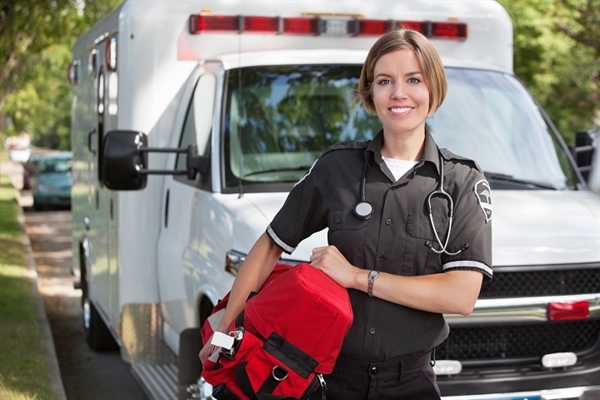A first responder is anything from an EMT or paramedic, to someone with basic first aid knowledge. The task at hand is multifaceted. In addition to handling the person in need, the first responder often has to deal with individuals, who may or may not contribute to the problem at hand. It's normal for loved ones, friends and empathetic bystanders to voice opinions, try to help and even get in the way. As overzealous bystanders can make caring for the patient difficult, knowing how to deal with them can alleviate stress not only for you, but for the patient as well.
Remain Calm
You can't expect those around you to remain calm if you aren't. Slow down, and take long deep breaths to help maintain your composure if you feel yourself starting to buckle under the pressure. Even if you aren't saying anything at all, a nervous first responder displays body language that can be easily picked up on. Tense muscles, flushing, sweating and clenched fists all speak volumes. Remember your training, and focus on the job at hand. By remaining calm and focused, you can set an example for those around you. A relaxed stance, confidence and slow, steady breathing all send a signal that you have things under control. Those around you will pick up on these nonverbal queues, and they may follow suit. If your job often puts you first on the scene, you may want to consider activities or classes that help to build up your ability to counter stress. Tai chi, yoga and even support groups may all help you find your footing when you need it most.
Delegate
For some, sitting by idly is difficult, especially for friends and loved ones. Having them help may take some of the pressure off of the first responder and allows them to feel like they are part of the solution. Small tasks that don't put the bystander in danger or distract from the situation can be a boon. Have them call 911, write down vitals or grab a first aid kit. By delegating simple tasks, it allows you to keep their focus on the task at hand.
Express Empathy
Sometimes a soothing voice and a reassuring tone are all that are needed to ease tension. If it doesn't interfere with the care of the patient, talk to the bystanders and family, and offer a play by play of the care. Empathy can be a powerful tool. By putting yourself in the shoes of the concerned, you can help them to understand the situation and calm their fears. Remember, it can't be faked. True empathy encompasses compassion. Fake empathy can come across as insincere and even condescending, which will only make matters worse. Putting a concerned bystander on the offensive can create a hostile situation, which can detract from taking care of the patient. While medical knowledge can be taught, empathy can't. It absolutely must be sincere.
Knowing how to bring calmness to a tense situation is an essential part of being a first responder. Not only will calming the crowd around you make it easier to accomplish the job at hand, but it will also bring comfort and peace to those you are helping.


